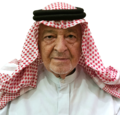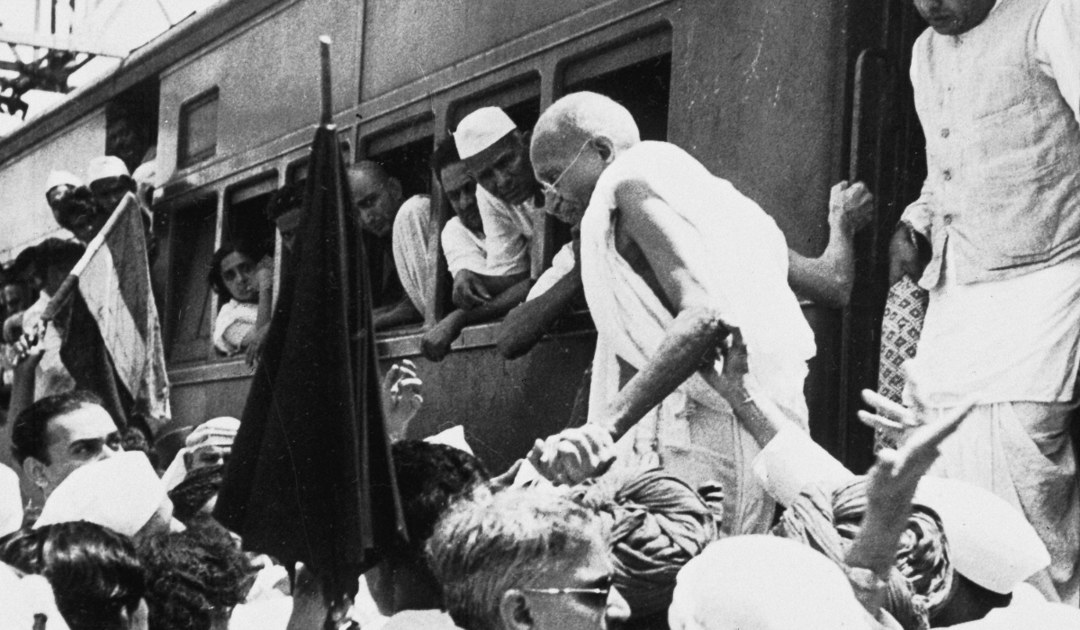Whenever we find ourselves, as today, trapped in an impasse of hatred and violence, my mind returns to the three figures who embodied nonviolent resistance, who were able to bring about extraordinary changes of freedom, reconciliation and understanding. Of course I am referring to Mahatma Gandhi, Nelson Mandela and Martin Luther King Jr., who individually and collectively taught the world the most precious lessons that we can draw upon today.
When faced with hatred, violence, killing and imprisonment, they preached love, understanding and the overcoming of tremendous challenges through integrity and respect. With the human tragedies unfolding in Gaza and Ukraine today, it is high time we relearned those lessons.
Gandhi led a series of nonviolent actions designed to reflect to the British that their actions were anything but high-minded. Gandhi’s satyagraha, or “truth-force,” employed nonviolence, or ahimsa, in the form of civil disobedience, tax resistance and the boycotting of British goods in favor of Indian production. His Salt March in 1930 sought to introduce Indians to the reality of the British salt monopoly, while he promoted “self-reliance” by urging fellow citizens, for example, to spin local fabrics instead of buying British cloth. Noncooperation also extended to withdrawing Indian labor from activities that sustained the British in India, including industry and education.
King combined Gandhi’s ideas with his background as a theologian to develop his own notion of nonviolence. At essence, he held “true pacifism” or “nonviolent resistance” to be “a courageous confrontation of evil by the power of love.” In his book “Stride Toward Freedom,” he explained that “the Christian doctrine of love operating through the Gandhian method of nonviolence was one of the most potent weapons available to oppressed people in their struggle for freedom.”
King’s conception of nonviolence rested upon six key principles: that it is possible to resist evil without violence; that nonviolence seeks to win the “friendship and understanding” of the opponent; that evil itself, not people committing evil acts, must be opposed; that those committed to nonviolence must be prepared to suffer without retaliation; that “the nonviolent resister not only refuses to shoot his opponent but he also refuses to hate him;” and finally, that the nonviolent resister must hold a “deep faith in the future,” based on the conviction that “the universe is on the side of justice.”
Building on the examples of those who came before him, we are all familiar with the tremendous change effected by Nelson Mandela in his lifetime, for his country South Africa, and through his strength of character, in the minds of people around the world. We are aware that his periods of nonviolence and civil disobedience were also interrupted by actions, through the African National Congress, that attempted change through violence.
We in the Middle East can accompany the movement of people holding up a mirror to their governments, claiming loud and clear that they will not stand for such discriminatory and deadly policies.
Ultimately, it was his 27 years in prison that allowed him to develop a deep philosophy of dialogue and reconciliation. This changed the history of South Africa and the lives of its majority black population more than anyone could have imagined. The humanist African philosophy of Ubuntu that Mandela espoused was perhaps best described by Archbishop Desmond Tutu, who was later tasked with healing South Africa’s wounds through the celebrated Truth and Reconciliation Commission, when he explained that “My humanity is caught up, is inextricably bound up, in yours,” that “a person is a person through other persons.”
This is the lesson we must all learn, and understand that it is to be applied in both directions, toward us and also toward the other. Human beings are not intrinsically evil, but they can get caught up in evil acts for many reasons. By treating others as full human beings that we can understand, that we can empathize with, and whom we can reach through emotions, we place faith in humanity and our ability to do good and to bring about good. We must not lose faith in others, no matter how obstinate and hateful they may seem to us. By practicing the methods of Gandhi, of King, of Mandela we can hold up the same mirror that Indians held up to the British, that black South Africans held up to the white Afrikaner ruling class.
We the People of the World can come together to show our rejection of the senseless killing and destruction wreaked today in Gaza and Ukraine. We can change this trajectory of violence by holding up a mirror to those of our governments, groups or corporations who actively or passively support these crimes against humanity. The growing number of people in the US and the West who marched against what is happening in Gaza is a clear sign of how countries have evolved and people are willing to express their consciences, even through self-immolation like the US soldier in front of the Israeli embassy in Washington, DC.
The hand enabling the policies of death and destruction is no longer invisible, but rather blatant and maneuvering to achieve objectives that run contrary to the interests and consciences of the people. We in the Middle East can accompany the movement of people holding up a mirror to their governments, claiming loud and clear that they will not stand for such discriminatory and deadly policies. We must establish a dialogue of the people, including those who remain currently oppressed as do the Gazans. In a movement of international solidarity, boycotts similar to those promoted by Gandhi and the anti-apartheid movement can target the countries and corporations enabling the deadly acts and policies in Gaza and Ukraine, amongst others.
It is our right to show and support what we think is right and good, not through the barrel of a gun but through the veins of love running through our hearts.
The word will spread. People are ready to do what it takes in solidarity with those who suffer. We must all be ready to help anyone in need, whoever they may be and whatever their predicament. At a most basic level, this means ensuring that all our fellow human beings are provided with food, water and shelter. This is the message our prophets, from Moses and Abraham to Jesus and Muhammad, repeated to us again and again, it is the message of humanity. It was also espoused in a tremendous example of soft power in the Kennedy era through the establishment of the Peace Corps, sending Americans to the most faraway places to help the poor and the needy.
Let us all show the world that we have better alternatives to living underground and to the bulldozers of hatred and destruction. As King said, the combination of love with Gandhian nonviolence is “one of the most potent weapons available to oppressed people in their struggle for freedom.” Nonviolent resistance and boycotting the goods that enable policies of hatred and destruction are more powerful tools of persuasion than we can even imagine. This requires a worldwide movement identifying and boycotting products and companies that directly or indirectly contribute to the crimes against humanity we are speaking of. We must all understand that we are a part of humanity, and should uphold the rights of every human being.
• Hassan bin Youssef Yassin worked closely with Saudi Arabia’s petroleum ministers, Abdullah Tariki and Ahmed Zaki Yamani, from 1959 to 1967. He led the Saudi Information Office in Washington from 1972 to 1981 and served with the Arab League’s observer delegation to the UN from 1981 to 1983.












